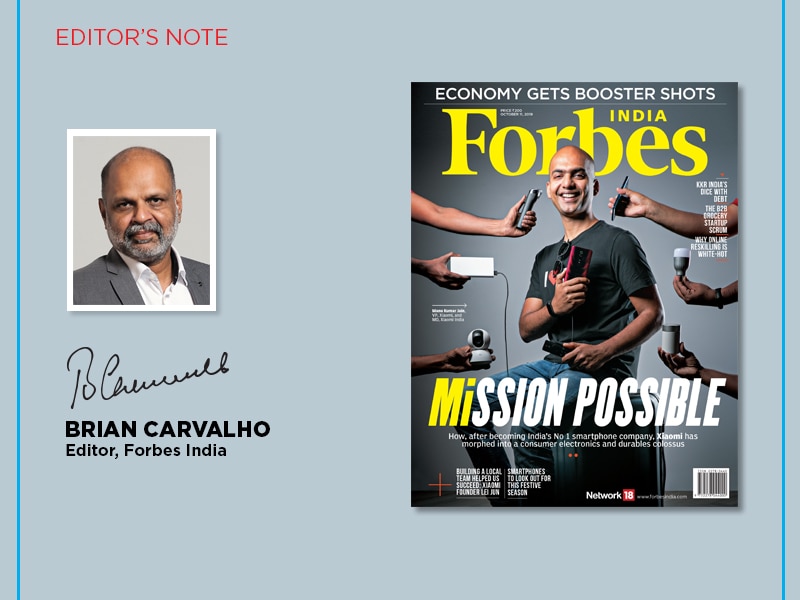Ask Mi anything
Xiaomi is stretching the Mi brand to sell everything from luggage to smart TVs


[br]Gree Electric Appliances is a Zhuhai-headquartered air-conditioning corporation that also makes water heaters, smartphones, home appliances and refrigerators, among other household appliances. Global Times, a tabloid that looks at global issues from the Chinese government’s perspective, recently in a feature on Gree CEO Dong Mingzhu, referred to a bet she had with Xiaomi founder Lei Jun back in 2013.
Dong, whose company swears by the slogan ‘Made in China, Loved by the World’, wagered that she would pay Lei 1 billion yuan ($14 million) if Xiaomi’s annual revenues surpassed Gree’s in five years. Dong won: In latest annual reports, Gree had revenues of a little over 198 billion yuan, and Xiaomi of 174.9 billion yuan (roughly $25.5 billion).
However, in August, Dong reportedly said she wouldn’t take the money from Lei, and that the bet was an argument between two different business ideas. Gree took shape in the early ’90s, when the internet hadn’t yet sunk into consumer consciousness. Lei founded Xiaomi in the post-iPhone age, in 2010, and soon earned the moniker of China’s Steve Jobs.
Till a year ago, ahead of Xiaomi’s much-touted IPO, analysts indeed talked about the Chinese smartphone maker in the same breath as Apple. But the public issue was a much toned-down affair—Xiaomi raised some $4.7 billion at a valuation of $54 billion, a far cry from Apple’s current $1 trillion market cap.
What augurs well for Xiaomi’s future earnings, though, is that it’s No 1 in the world’s two biggest mobile phone markets, China and India. In India, it has been on a tear, selling over 100 million smartphones in the past five years. This compares well with Apple selling 146 million iPhones worldwide between 2007 and 2011.
The next leg of the journey, as Rajiv Singh captures in this fortnight’s cover story, is an evolution into a full-fledged internet company with smart hardware connected by an Internet of Things platform. Singh spoke to India head Manu Jain as well as founder Lei, who said Xiaomi has invested in over 200 startups and “could be the largest hardware incubator in the world”.
In 2018, Xiaomi’s international revenue stood at almost $10 billion, or 40 percent of the total. India contributed a third of that, at $3.24 billion, a mind-boggling growth of 175 percent over a year ago. And, now, with Xiaomi stretching the Mi brand to sell everything from luggage and audio products to smart TVs and air-purifiers, new growth avenues have opened up. The mainstay, though, will remain smartphones, where Jain is conscious that yesterday’s disruptor can easily face the same fate in a hyper-competitive market. In many ways, Xiaomi is taking a path similar to Gree’s, which has air-conditioning as its core, around which it has built related categories.
Smartphones isn’t the only sector with cut-throat competition in India. This fortnight we shine a light on two other tech-enabled businesses witnessing such rivalry. Sayan Chakraborty delves into the B2B grocery startup space where a handful of well-funded ventures are slugging it out to supply to neighbourhood stores, which dominate India’s retail landscape.
And Kunal Talgeri lays out the plans of some of India’s seasoned entrepreneurs to build viable internet business models in the white-hot area of reskilling. In today’s fast-changing environment, adding value to what you know and have learnt—or creating a business around it—isn’t a bad idea at all.
Best,
Brian Carvalho
Editor, Forbes India
Email:Brian.Carvalho@nw18.com
Twitter id:@Brianc_Ed
First Published: Sep 26, 2019, 08:53
Subscribe Now